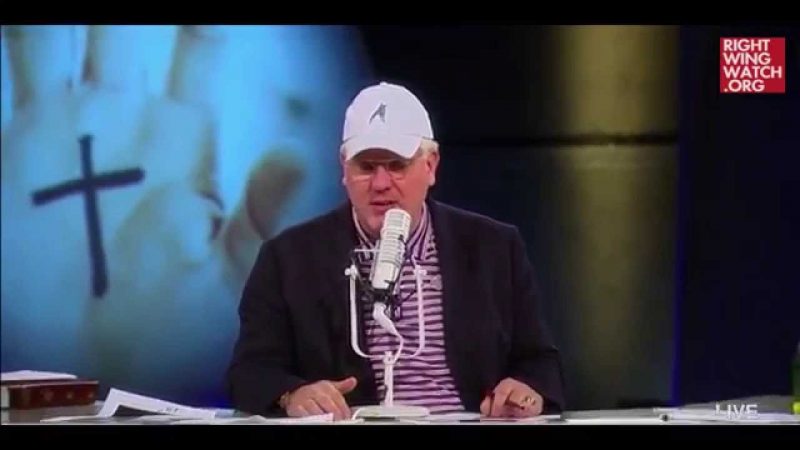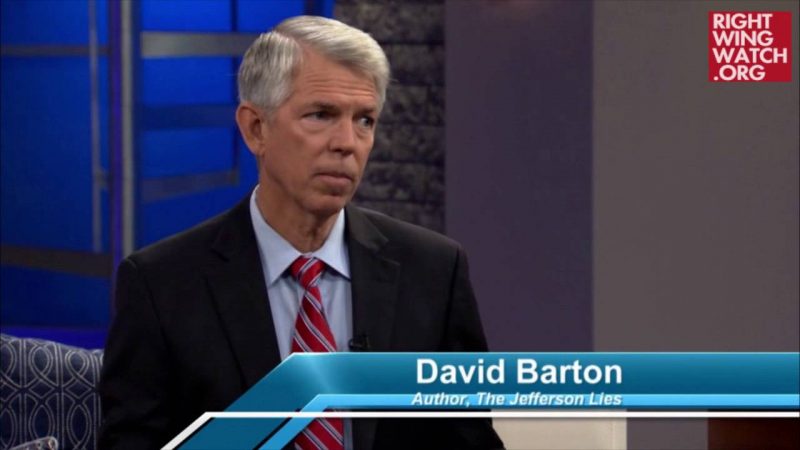There is a fundamental irony at the heart of Religious Right pseudo-historian David Barton’s core message: While he constantly laments that too many Americans today are biblically illiterate, it is that very illiteracy that allows him to get away with spreading absurd claims about the Bible and our form of government.
While speaking at Jim Garlow’s Skyline Church in California last week, Barton claimed that the Founding Fathers did not believe in taxing American citizens because Jesus opposed it.
While again misrepresenting the parables found in Luke 19 and Matthew 25 to falsely claim that Jesus wanted to “reward profit-makers” and “the accumulation of profit,” Barton claimed that the founder opposed the imposition of an income tax because it violates both the laws of nature and the laws of the Bible.
“The Founding Fathers did not have an income tax,” he said, “because an income tax takes your property away from you … See, that’s why we did money back in the old days through tariffs and through other things. Remember when Jesus was talking to Peter and he said, ‘Peter, who pays taxes, the sons or the foreigners?’ Peter said, ‘The foreigners, of course.’ You see, the sons didn’t pay taxes and that’s the way Jesus laid it out; there’s an obvious answer to a rhetorical question, Peter got it right. That’s the way American taxation used to be was we taxed outsiders coming in through tariffs and other things, but we didn’t tax the people.”
Barton, of course, didn’t bother to mention where in the Bible this exchange occurred, presumably because if he did, people might look it up and discover that his interpretation is ludicrous.
It comes from Matthew 17:
24 After Jesus and his disciples arrived in Capernaum, the collectors of the two-drachma temple tax came to Peter and asked, “Doesn’t your teacher pay the temple tax?”
25 “Yes, he does,” he replied.
When Peter came into the house, Jesus was the first to speak. “What do you think, Simon?” he asked. “From whom do the kings of the earth collect duty and taxes—from their own children or from others?”
26 “From others,” Peter answered.
“Then the children are exempt,” Jesus said to him. 27 “But so that we may not cause offense, go to the lake and throw out your line. Take the first fish you catch; open its mouth and you will find a four-drachma coin. Take it and give it to them for my tax and yours.”
In this passage, Jesus and Peter were discussing paying the “temple tax” and Jesus argued that just as the “kings of the earth” do not levy taxes on their own children, neither should the children of God have to pay a tax in order to enter His temple. Nevertheless, Jesus instructed Peter to pay the tax for the both of them.
Jesus was most certainly not asserting, as Barton claims, that governments should not tax their citizens, nor does Barton provide any evidence that the founders cited this nonexistent principle as justification for refusing to levy an income tax.







